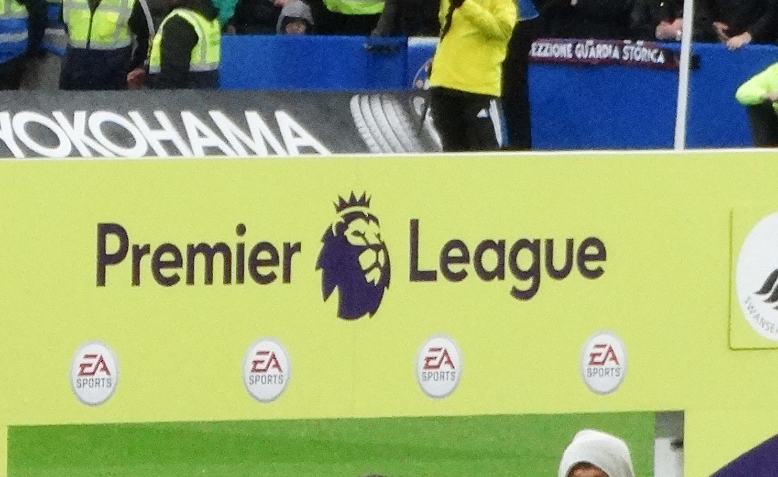 Premier League. Photo: @cfcunofficial (Chelsea Dubs) London / Wikimedia Commons / cropped from original / CC BY-SA 2.0, license linked at bottom of article
Premier League. Photo: @cfcunofficial (Chelsea Dubs) London / Wikimedia Commons / cropped from original / CC BY-SA 2.0, license linked at bottom of article
The urgent task of fighting racism in football is not helped by the Premier League adopting the flawed IHRA definition of antisemitism, says Tony Dowling
It is disappointing to see that English football’s Premier League has joined the institutional stampede to adopt the International Holocaust Remembrance Alliance’s (IHRA) working definition of antisemitism.
The IHRA definition has been adopted, it says, “as part of its ongoing commitment to promote equality and diversity and combat discrimination of any form in football”.
It is good to see that football includes antisemitism in its efforts to tackle racism in the sport, but there are well-known problems with the “examples of antisemitism” included in the IHRA definition. And, in fact, even Kenneth Stern, the man who drafted the IHRA definition of antisemitism, condemns its use to curb freedom of speech.
Bill Bush, executive director of the Premier League, said:
“Our adoption of the IHRA’s working definition will enable us to be more effective in dealing with any antisemitic behaviour targeting our clubs or personnel.”
That might make a good soundbite, but dealing with the reality of racism in the game is something that football seems less than effective at.
The disgusting attack on players taking the knee in supporting Black Lives Matter at Millwall, the racist abuse by an official in the Champions League and the recent controversy of the resignation of FA chairman Greg Clarke for racist comments, suggest that what is needed is genuinely effective action against racism, not more words.
As we have long argued at Counterfire, the adoption of the IHRA definition of antisemitism by the Labour party was about “stifling criticism of Israel” and part of an attack on the left and Palestine solidarity. And there is now growing criticism of the way it is being implemented ad hoc by so many institutions, including universities.
“The IHRA ‘working definition’ is confusing and divisive. Forcing its adoption will not help protect Jewish students and staff.”
So said David Feldman, director of the Pears Institute for the Study of Antisemitism at Birkbeck, University of London, commenting on education secretary Gavin Williamson ordering universities in England to adopt the IHRA definition before the end of the year, or risk having funding cut off.
Perhaps more importantly, as well as limiting criticism of Israel, the way the IHRA definition has been applied, interpreted and deployed has meant that:
“the fight against antisemitism has been increasingly instrumentalised by the Israeli government and its supporters in an effort to delegitimise the Palestinian cause and silence defenders of Palestinian rights.”
Indeed, as Kenneth Stern said in evidence submitted in 2017 to the US Congress, charging that his original definition had been used for an entirely different purpose to that for which it had been designed:
‘Imagine a definition designed for Palestinians. If “Denying the Jewish people their right to self- determination, and denying Israel the right to exist” is antisemitism, then shouldn’t “Denying the Palestinian people their right to self-determination, and denying Palestine the right to exist” be anti-Palestinianism? Would they then ask administrators to police and possibly punish campus events by pro-Israel groups who oppose the two-state solution, or claim the Palestinian people are a myth?’
Antisemitism is a real problem and should be challenged and opposed, but the IHRA’s working definition is not fit for purpose and its adoption by the Premier League, universities, the Labour Party and other institutions is a mistake, and appears to be as much about silencing support for Palestine as it is about fighting racism.
Join Revolution! May Day weekender in London
The world is changing fast. From tariffs and trade wars to the continuing genocide in Gaza to Starmer’s austerity 2.0.
Revolution! on Saturday 3 – Sunday 4 May brings together leading activists and authors to discuss the key questions of the moment and chart a strategy for the left.

